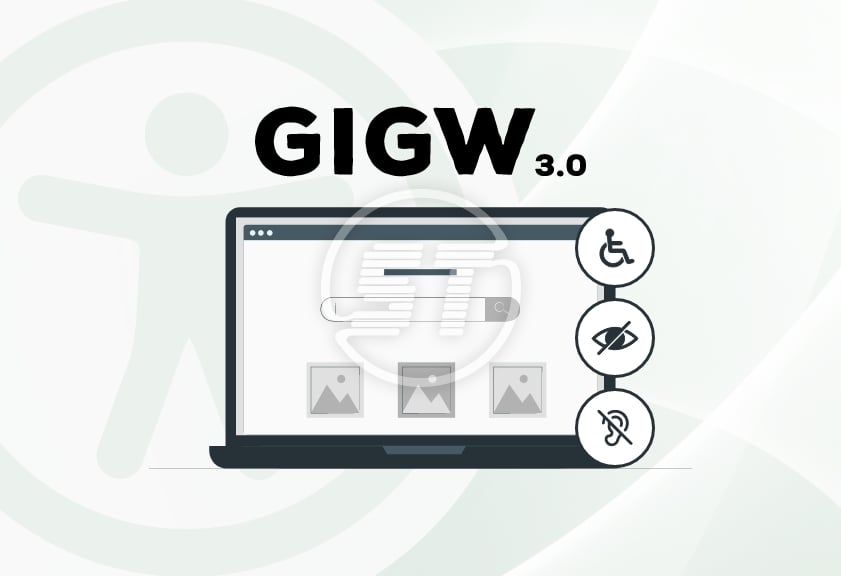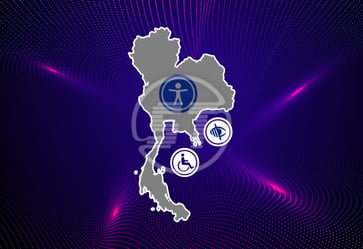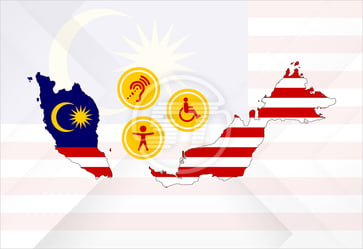As the world becomes a more digital place, we cannot forget about the human connection.
In an era where digital governance is rapidly expanding, accessibility and inclusivity are crucial for ensuring that government services reach every citizen, including people with disabilities. The Indian government has taken a significant step toward this goal with the release of GIGW 3.0 (Guidelines for Indian Government Websites and Applications).
This latest version of the GIGW framework builds upon its predecessors, reinforcing the principles of digital inclusivity, usability, and compliance with global accessibility standards.
GIGW 3.0 – an important notion of Indian government!
GIGW 3.0 is a set of comprehensive guidelines formulated by the National Informatics Centre (NIC) under the Ministry of Electronics and Information Technology (MeitY). These guidelines aim to make government websites and applications more accessible, ensuring that all users, regardless of their abilities, can access essential online services seamlessly.
The framework aligns with the Rights of Persons with Disabilities Act 2016, the Harmonized Guidelines on Accessibility, and international standards the Web Content Accessibility Guidelines (WCAG) 2.1. It introduces robust measures to enhance the digital experience for users with visual, auditory, cognitive, and motor impairments.
Sum and substance of GIGW 3.0!
- Enhanced accessibility standards
GIGW 3.0 mandates compliance with WCAG 2.1 Level AA, which ensures:
Text alternatives for non-text content.
Keyboard-friendly navigation for users with motor disabilities.
Readable content for screen readers.
Captions and transcripts for multimedia content.
And other guidelines of WCAG 2.1.
- User-centric design
The new guidelines emphasize responsive design, ensuring that websites function effectively across various devices, including mobile phones, tablets, and assistive technologies.
- Multilingual support
India’s linguistic diversity is a key consideration in GIGW 3.0. Websites must provide content in multiple Indian languages, ensuring inclusivity for non-English speakers and those from rural areas.
Kick start accessibility journey with All in One Accessibility® Supports 140+ languages including Hindi, Bengali, Persian, Punjabi, Assamese, Gujarati, Kannada, Marathi, Odia (Oriya), Sanskrit, Sindhi, Tamil, Telugu, Urdu, Bhojpuri, Dogri, Konkani, Maithili, Meiteilon (Manipuri), Mizo, and more.
- Downloadable materials
Government websites/applications contain important information. Thus, every circular, document, notification, form, scheme, and recruitment notice must be accessible. Moreover, downloading documents is time-consuming for people with disabilities, thereby each downloadable material must be created adhering to accessibility best practices.
Additionally, if a document is outdated, websites must remove that document to mitigate confusion.
- Security and privacy compliance
Security remains a top priority, with mandatory Secure Sockets Layer (SSL) encryption, multi-factor authentication, and data protection measures to safeguard user information.
The new guidelines are based on best industry security practices such as ISO 27001, Center for Internet Security (CIS) benchmarks, and the Application Security Verification Standard (ASVS) issued by the Open Web Application Security Project (OWASP).
- Quality of the websites
A government website/app ought to be accessible to everyone, easy to use, and should have high-quality content. It must be optimized for mobile phones and should load quickly. There must be trustworthy and engaging content for users on all government assets. Also, the website UI needs to be visually appealing yet straightforward.
- Regular accessibility audit and monitoring
Government websites must undergo periodic audits to ensure ongoing compliance. Automated testing tools, manual evaluations, and user feedback mechanisms are incorporated for continuous improvement.
- Legal provisions
India is a signatory to the United Nations General Assembly Convention on the Rights of Persons with Disabilities. The government has ratified the Convention on October 1, 2007 and on December 27, 2016, India enacted the Rights of Persons with Disabilities Act, 2016 to implement the Convention.
- API Integration
All government websites must have API integration enabled thereby important government platforms (such as India Portal, Aadhaar, DigiLocker, MyGov, Single-Sign-On, MyScheme, and Data Platform) can share information and data with similar websites of the government organizations.
Read official guidelines in detail to learn more about GIGW 3.0 accessibility standards.
Impact of GIGW 3.0 on digital governance
- Empowering citizens with disabilities
By eliminating barriers to access, GIGW 3.0 ensures that visually impaired individuals, persons with mobility challenges, and those with cognitive disabilities can interact with government portals effortlessly.
- Promoting digital inclusion
The guidelines support India’s Digital India vision by making e-governance services accessible to all, including elderly citizens, rural populations, and economically disadvantaged groups.
- Increasing transparency and efficiency
Enhanced accessibility leads to improved usability, making it easier for all citizens to navigate government portals, access information, and avail of essential services without external assistance.
Challenges and the road ahead
- Implementation and compliance issues
Despite the clear guidelines, ensuring widespread compliance across all government websites remains challenging. Capacity-building initiatives and awareness programs are crucial to support government agencies in implementing these guidelines.
- Need for skilled accessibility experts
To achieve full compliance, there is a pressing need to train developers, designers, and content creators in accessibility best practices.
- Continuous evolution
With emerging technologies like Artificial Intelligence (AI), Machine Learning (ML), and Augmented Reality (AR), the guidelines must evolve to accommodate future advancements in accessibility solutions.
In a nutshell,
GIGW 3.0 is a landmark initiative in India’s digital transformation journey, ensuring that government websites and applications are accessible to every citizen, regardless of their abilities or digital literacy. While challenges persist, the collective effort of government agencies, developers, and stakeholders can pave the way for a truly inclusive digital ecosystem in India.
By embracing GIGW 3.0, India takes a significant stride ensuring that digital governance serves everyone equitably. Also, please remember that although there is no concrete information mentioned about consequences for non-compliance, they cannot be completely denied.
If your website isn’t accessible to everyone, you could be missing out on a wider audience and facing potential compliance risks. Skynet Technologies’ Website Accessibility Remediation Services and All in One Accessibility solutions provide a seamless way to enhance accessibility, improve user experience, and align with ADA, WCAG, and other global compliance standards. Whether you need a full audit, custom remediation, or an AI-powered accessibility widget, we’ve got you covered. Take the next step toward an inclusive digital presence—contact us today to make your website accessible to all!
As digital accessibility becomes a critical factor for businesses, adopting a solution like All-in-One Accessibility can help meet the GIGW 3.0 guidelines efficiently. With its easy integration and comprehensive features, your website can enhance inclusivity for all users. Explore how All in One Accessibility can improve your compliance efforts while delivering an optimized user experience. Ready to make your website more accessible? Start today!


